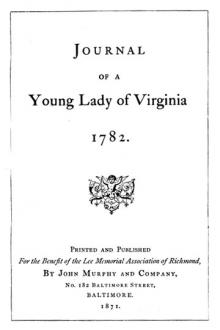The Joker, Edgar Wallace [books you have to read TXT] 📗

- Author: Edgar Wallace
- Performer: -
Book online «The Joker, Edgar Wallace [books you have to read TXT] 📗». Author Edgar Wallace
People who pass as strangers on the Monday may be planning a mutual
future on the Saturday. A very pretty girl… the wheels of Mr Ellenbury’s
mind began to revolve, were whirling madly.
The first thing she would tell Harlow.
‘Did you see Mr Ellenbury?’
‘Yes; he had an enormous quantity of money in two suitcases on his
desk… ‘
He could imagine the swift conclusions that would follow.
‘My wife is very ill’—the wheels creaked a little—‘very ill. She hasn’t
been out of bed for twenty years.’ His weak mouth drooped pathetically.
‘It is strange… your coming like this. She asked about you this
morning.’
‘About me?’ Aileen could hardly believe her ears. ‘But I don’t know her!’
‘She knows you—knew you when you were a child—knew your mother or your
father, I’m not sure which.’ He was on safe ground here, though he was
not sure of this. ‘Curious… I intended calling at Stebbings’s to ask
you… the car would bring you back.’
‘To see Mrs Ellenbury—tonight?’ She was incredulous. Mr Ellenbury nodded
his head. ‘But—I’ve promised to go to Mr Harlow’s house.’
‘There will be time—it is an old man’s request; unreasonable—I realise
that.’ He looked very old and mean and unhappy.
‘Is it far?’
He told her the exact position of this house—described the nearest
route. What would happen after, he did not know. There would be time to
consider that. Something dreadful. To keep her away from Harlow—her
lover perhaps. That was the first consideration. His seats were booked,
the cabin reserved; he left in the morning by the early train. Why not by
Ostend? These by-thoughts insisted on confusing him.
‘Could I telephone to Mr Stebbings?’
‘I’ll do that.’ He was almost jovial. ‘What you can do, young lady, is to
help me pack these two cases. A lot of money, eh? All Harlow’s, all
Harlow’s! A clever man!’
She nodded as she gathered up the bundles of bills.
‘Yes—very clever.’
‘A good fellow?’
She wasn’t sure of this; he thought she was dissembling a new affection.
Obviously she was fond of Harlow. Otherwise, since she was a known friend
of Jim Carlton she must express her abhorrence. He had escaped a very
real danger.
She had forgotten that he had promised to telephone until the car,
waiting all this time in the soaking rain, was moving down Kingsway. ‘I
have a phone at my house,’ he said.
It is true that he had a telephone—a private wire into Mr Harlow’s
library. But he was hardly likely to use it. Crouched up in a corner of
the car, the suitcases at his feet, knocking at his knees as the machine
slowed or accelerated, he talked about his wife, but he thought of the
girl by his side. And he reached this conclusion: she was the one person
in the world who could betray him. The one person in the world who knew
that he had two large suitcases filled with money. It was necessary that
he should forget bank managers and Harlow and certain members of the
Rata’s staff, and so he forgot them. A bit of a girl to stand between him
and a wonderful future. Picture galleries, sunlight on striped awnings,
great masses of flowers blooming under blue skies, what time fog and rain
clouds palled this filthy city and liquid mud splashed at the windows of
the hired car.
They were nearing the house when he dropped the window and leaned out on
the driver’s side.
‘The house is the fourth from the next side road. Stop before the gates;
don’t go into the drive and wait for a few minutes before you drive
away.’
He pushed three notes into the man’s hand: the gum-chewing driver
examined them by the light on his instrument board and seemed satisfied.
‘Do you mind if we stop at the gate? It is only a little walk up the
drive—my wife is so nervous; starts at every sound.’
Aileen did not object. When they alighted in the muddy road, she offered
to carry one of the cases and he consented. It was heavier than she
expected.
‘Harlow’s, all Harlow’s!’ he muttered as he walked through the ugly gates
and bent his head to the drive of rain. ‘One of his “jokes”.
‘What do you mean by “joke”?’ she asked.
‘Harlow’s jokes… difficult… explain.’ The wind tore words out of his
speech. She could see the house; square, lifeless. ‘To the left—we go in
at the back.’
They were following a cinder-path that ran snakily through the bare stems
of rose bushes. Ahead of her she saw a squat building of some sort. It
was the furnace house of the greenhouses, he told her.
‘There are two steps down.’
Why on earth were they going into a hot-house at this time of night? He
answered the question she had not put.
‘Safe… lock away… cases,’ he shouted.
The wind had freshened to a gale. A flicker of lightning startled her:
lightning in December was a phenomenon outside her knowledge. Ellenbury
put down the cases and pulled at a rusty padlock; a door groaned open.
‘Here,’ he said, and she went in after him.
He struck a match and lit an inch of candle in a grimy little
storm-lantern and she could take stock of the place. It was a brick pit,
windowless. The floor was littered with cinders and broken flower-pots.
On a wooden bench was a heap of mould from which the green shoots of weed
were sprouting. There was a rusting furnace door open and showing more
ashes and cinders and garden rubbish.
‘Just wait: I’ll bring the bags.’
His heart was beating so violently that he could hardly
breathe—fortunately for her peace of mind, she could not see his face.
He staggered out and slammed the door, threw the rusty lamp on to the
staple and, groping at his feet, found the padlock and fixed it. Then he
stumbled up the two steps and ran towards the house.
He had to sit on the steps for a long time before he was sufficiently
calm to go in. Listening at the door before he opened it, he crept into
the hall, closed the door without a sound and tiptoed to his study. He
was wet through and shivering. The suitcases were shining like patent
leather.
He took off his drenched overcoat and rang the bell. The maid who
presently appeared was surprised to see him.
‘I thought, sir—’ she began, but he cut her short.
‘Go up to my room—don’t make a noise—and bring me down a complete
change. You may tell your mistress that I shall not be up for some time.’
Poking the meagre fire, he warmed his hands at the blaze.
The girl came back with a bundle of clothes, announced her intention of
making him a cup of tea and discreetly retired.
Mr Ellenbury started to change when a thought occurred to him. He might
have to change again. His trousers were not very wet. And round about the
pit was very muddy. He had thought of the pit in the car. Fate was
working for him.
He put on his dressing-gown and took down from a shelf two volumes which
he had often read. The Chronicles of Crime they were called—a record of
drab evil told in the stilted style of their Early Victorian editor. They
were each ‘embellished with fifty-two illustrations by “Phiz”.’
He opened a volume at random.
‘… when a female, young, beautiful and innocent, is the victim of
oppression, there is no man with common feelings who would not risk his
life to snatch her from despair and misery… ‘
This little bit of moralising was the sentence he read. He turned the
page, unconscious of its irony.
Maria Marten—shot in a barn. There was another woman killed with a
sword. He turned the leaves impatiently; regretted at that moment so
little acquaintance with the criminal bar. There was a large axe—where?
Outside the kitchen door. He went down the kitchen stairs, passing the
maid on her way up. Just outside the kitchen door, in the very place
where he had seen it that morning, he found the axe. He brought it
upstairs under his dressing-gown.
‘You may go to bed,’ he said to the maid. He drank his tea and then heard
the ring of the telephone in the hall. He hesitated, then hastened to
answer it.
‘Yes this is Ellenbury,’ he strove to keep his voice calm, ‘Miss Rivers?
Yes she called at my office soon after six with a letter from Mr
Stebbings—no, I haven’t seen her since… ‘
He heaved on his wet overcoat and went out into the storm.
How very unpleasant!… why couldn’t they let him go away quietly… an old
man—white-haired, with only a few years to live? Tears rolled down his
cheeks at the injustice of his treatment. It was Harlow! Damn Harlow!
This poor girl, who had done nobody any harm—a beautiful creature who
must die because of Harlow!
He dashed the weak tears from his eyes with the back of his hand, lilted
off the padlock and threw open the door.
The candle had burnt down to its last flicker of life, but in that
fraction of light, before the wick sank bluely into oblivion, he saw the
white face of the girl as she stood, frozen with horror. Ellenbury swung
his axe with a sob.
WHEN Mr Elk went into the office of his friend that afternoon, he found
Jim engrossed in a large street plan that was spread out on the table. It
had evidently been specially drawn or copied for his purpose, for there
was a smudge of green ink where his sleeve had brushed.
‘Buying house property?’ asked Elk.
Jim rolled up the plan carefully and put it into his drawer.
‘The real estate business,’ Elk went on, ‘is the easiest way of getting
money I know. You can’t be pinched for it, and there’s no come-back.
Friend of mine bought a cow field at Finchley and built a lot of
ready-to-wear villas on it—he drives his own Jaguar nowadays. I know
another man—’
‘Would you like to assist me in a little burglary tonight?’ interrupted
Jim.
‘Burglary is my long suit,’ said Elk. ‘I remember once—’
‘There was a time,’ mused Jim, ‘when I could climb like a cat, though
I’ve not seen a cat go up the side of a house, and I’ve never quite
understood how “cat burglar” can be an apposite description.’
‘Short for caterpillar,’ suggested Elk. ‘They can walk up glass owing to
the suckers on their big feet. That’s natural history, the same as flies.
Where’s the “bust”?’
‘Park Lane, no less,’ replied Jim. ‘My scheme is to inspect one of the
stately homes of England—the ancestral castle of Baron Harlow.’
‘He ain’t been knighted, has he?’ asked Elk, who had the very haziest
ideas about the peerage. ‘Though I don’t see why he shouldn’t be; if—’
he mentioned an illustrious political figure—‘was in office, Harlow
would have been a duke by now, or an earl, or somethin’.’
Jim looked out of the window at the Thames Embankment, crowded at this
rush hour with homeward-bound workers. It was raining heavily, and half a
gale was blowing. Certainly the fog which had been predicted by the
Weather Bureau showed no sign of appearance.
‘The Weather people are letting me down,’ he said; ‘unless there’s a fog





Comments (0)